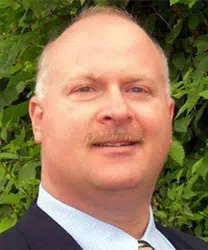
Here is the issue: The Telemarketing Sales Rule (“TSR”) 16 CFR 310.4(a)(2)(ii) targets credit repair organizations (“CROs”) from charging payment of any fee for services to remove derogs from a credit report until such report has been issued more than 6 months after the results have been achieved. This is a paraphrase. In essence, this rule is intended to drive CROs out of the legitimate business market.
The TSR was created by the FTC but now the CFPB is attempting to enforce it against CROs. I believe that the TSR was not properly created and is illegal for the very reasons alleged in NACSO’s complaint. I did not create these points, but am merely agreeing with them. I think the complaint is well based on law and very persuasive.
NACSO, in its complaint, has made three very important points as to why the TSR should be adjudicated as a nullity:
- The creation of the TSR exceeds the statutory authority given to the FTC under the Telemarketing and Consumer Fraud and Abuse Prevention Act at 15 U.S.C. 6101. (“Telemarketing Act”);
- The TSR which was created by the FTC conflicts with the Credit Repair Organizations Act which was subsequently created by Congress;
- The TSR violates of the First Amendment Rights of Credit Repair Organizations.
To understand these arguments better, take a look at the legislative history of the laws at issue.
History/timeline
1914 Congress passed the FTC Act that created the FTC. The FTC is charged with preventing persons and entitles from using unfair methods of competition in or affecting commerce. But Congress limited that authority by imposing special procedural and judicial review requirements for the FTC’s conduct that exceeds the FTC’s authority in the Administrative Procedure Act (15 U.S.C. 57a.
1994 Congress enacted the Telemarketing Act that provides consumers necessary protection from telemarketing deception and abuse. This Act authorizes the FTC to prescribe rules such as the TSR, prohibiting deceptive telemarketing acts or practices. The FTC is also charged with enforcement with these rules. While the Telemarketing Act requires the FTC to create rules regulating telemarketers, it does NOT give the FTC authority to regulate a telemarketer’s compensation. This is key point 1.
1996 Congress enacted Credit Repair Organization Act to regulate credit repair organizations. This act regulates how CROs get paid. They can only get paid after they have rendered services. In this statute, Congress articulates when a CRO can get paid. The CROA did NOT delegate rule making authority to the FTC but simply directed it to enforce the statute. This is another key point. The TSR was created by the FTC and CROA was created by Congress. In the case of a conflict, which there is, the statute is the controlling law.
2010 Congress passed the Consumer Financial Protection Act. This is the statute that created the CFPB.
From a legal perspective, there is a conflict between the TSR created by the FTC and the CROA created by Congress. The former only lets a credit repair organization get paid six months after the CRO has produced proof that the derogatory information has been removed, while under CROA, the CRO can get paid immediately following the completion of the task for which he was hired. Which is correct?
The Lawsuit by NACSO against the CFPB
On May 21, 2020, NACSO filed a lawsuit in federal court against the CFPB, ask the court to declare that the TSR rules are invalid. NACSO wisely took a 3 pronged attack on the TSRs as follows:
- The TSR exceeds the FTC’s authority to create rules. Under the Telemarketing Act, Congress gave the FTC some power to create rules to enforce the statute. That authority did NOT include the power to regulate when or how a credit repair organization is to get paid. Congress regulated this in the Credit Repair Organization Act. The TSRs, as they stand, simply exceed the FTC’s rule making authority.
Secondly, the CROA which was passed by Congress and which explicitly states how credit repair professionals are to be paid and when, trumps the TSRs. Congress’ statutes, generally, are more authoritative than the FTC’s rule making authority.
- The TSR violates the free speech of CROs. Case law, as noted in the NACSO complaint, states that Government regulation of speech is content based if a law applies to particular speech because of the topic discussed or the idea or message expressed. While laws can regulate Content based speech, such laws are subject to a strict scrutiny standard. This means that the law regulating content-based speech must be narrowly tailored to promote a compelling Government interest. (Think about a gag order issued by a court in a very highly publicized and emotionally charged case during which a jury trial is pending). The law regulating such content-based speech must use the least restrictive means available.
In this case, the TSR delays the payment by a consumer to a CRO by six months. Its inconceivable as to how this could possibly promote any governmental interest.
- Moreover, the TSR’s six-month delay in payment only applies to CROs and not to any other industry. The TSR was narrowly tailored to screw CROs only and no one else. This is unconstitutional.
Support the NACSO Effort
As a CRO, you now understand the points made by NACSO in its complaint against the CFPB. I would advise and urge you, as a CRO, to support NACSO’s efforts to defeat the TSR because the loss of this case could spell imminent danger for your future. I am NOT affiliated with NACSO. However, at this point, its time to lay our differences aside because this is a fight that we all share. They have taken up the fight and I, for one, support them. I hope you will support them, too.

Gary Nitzkin, Esq.
Licensed in Michigan only
